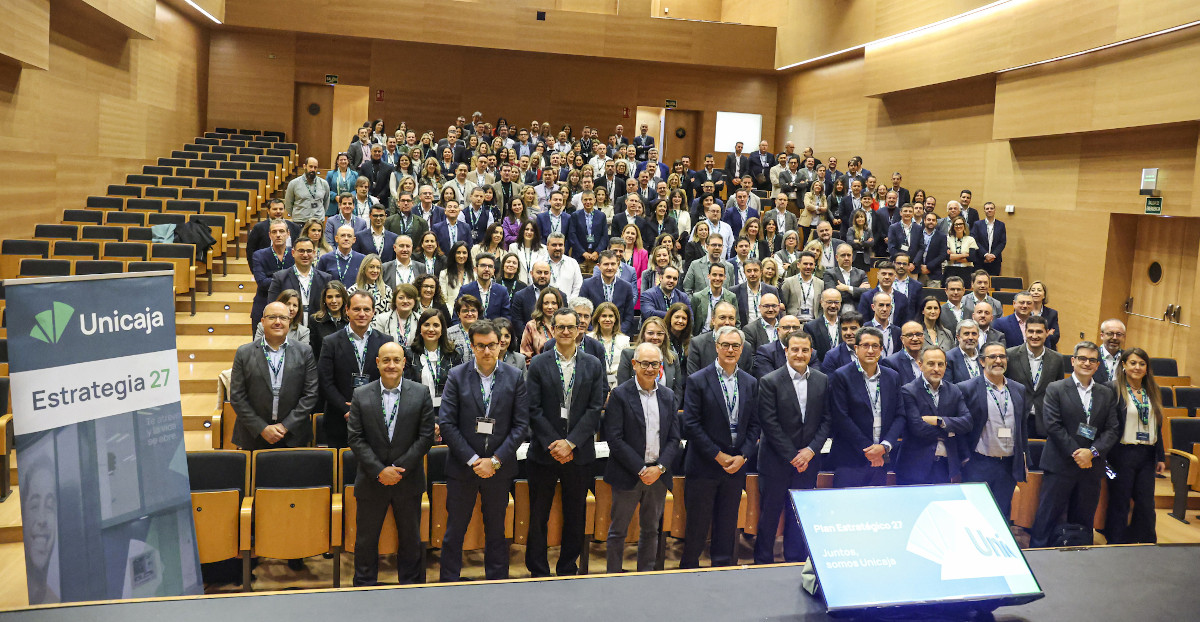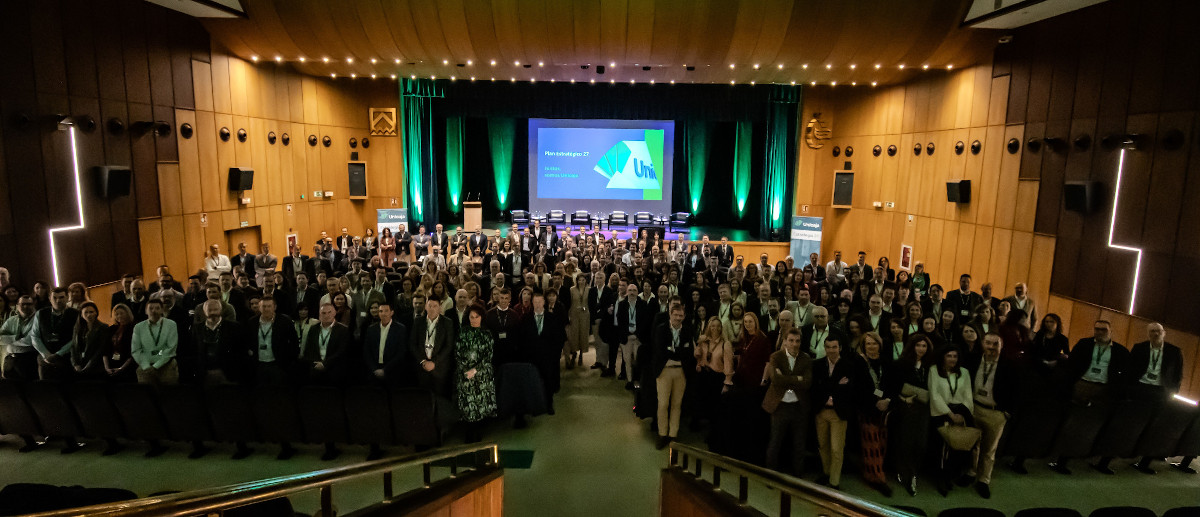Unicaja shows its support for cancer research with its backing as a founding institution to the Center for Cancer Research and Advanced Therapies (CITAC), established in Malaga.
Among the founding trustees that will make up this leading public-private monographic cancer center, which will be located at the University's Center for Medical and Health Research (CIMES), are: the UMA (whose Vice-Chancellor chairs the Foundation), Fundación Unicaja (which will hold the vice-chair of the institution), Malaga Town Hall, Unicaja, the FGUMA, Fundación Kareema, Fundación SANDO and Famadesa. Emilio Alba, Professor of Oncology at the University of Malaga, will act as scientific director.
The signing of the deeds of incorporation of Fundación CITAC, which will position Malaga at the forefront of oncology research, took place this Friday at the Rectorate of the UMA in the presence of a notary public.
The presentation ceremony, chaired by the Vice-Chancellor of the UMA, Teodomiro López, took place in the auditorium of the Rectorate, and was also attended by the Regional Minister of Economy, Finance and European Funds of the Junta de Andalucía, Carolina España; the mayor of Málaga, Francisco de la Torre; the CEO of Unicaja, Isidro Rubiales, and the Chair of Fundación Unicaja, José M. Domínguez. Also in attendance was the president of the Malaga Provincial Council, Francisco Salado, among other institutional representatives.
During the event, Emilio Alba, one of the international references in the research and fight against cancer in our country, was in charge of presenting CITAC's lines of research.
As strong points of this initiative, Alba highlighted the need to reduce the mortality of cancer patients, but also its influence on the economic, social and scientific ecosystem of Malaga. He also insisted on the importance of advancing in the knowledge of this disease. "All this is possible thanks to the union of public-private efforts".
The Vice-Chancellor, for his part, wanted to highlight one of the qualities of Alba, CITAC's alma mater: "his non-conformism, which teaches us so much”. He thanked him for his tireless work over the years to make this Center a reality. "Now the most complicated part remains, attracting talent and bringing the best to Malaga".
Likewise, José M. Domínguez stated that "for us, as a Foundation, it is an honor and a responsibility to have participated in the creation of this new Center, as well as to have joined its board of trustees, holding, in addition, its vice-chair. Our expectations are high, taking into account the experience, talent and resources that it will bring together". "We are convinced that CITAC, located in Malaga, will become an international reference center for cancer research and therapies," he concluded.
The mayor highlighted the relevance of being a public-private foundation, mostly private, since, in his opinion, "this translates into speed of movement when it comes to generating responses". "From the Town Hall we join this successful collaboration, which will result in the common good and that begins with great force," said Francisco de la Torre.
Isidro Rubiales, CEO of Unicaja, pointed out that "it is part of our corporate social responsibility policy, the unwavering commitment to get involved, to the extent of our possibilities, in those initiatives that have an expected positive social return" and gave as an example the launching of Fundación CITAC "of which we will be part as a founding institution".
He insisted on "the need and usefulness, in the current context, of adopting public-private collaboration schemes such as the one that has been chosen, as it allows multiplying capacities to undertake actions that require significant efforts and dedication of resources".
Finally, he expressed his conviction that "Fundación CITAC will respond to the mission and objectives for which it was created, which will undoubtedly benefit the whole of Malaga and Andalusia, in particular, and society in general".
Finally, the Regional Minister insisted that CITAC is now possible thanks to the drive of all its trustees. "The third most important center related to oncology research in the country, which will turn Andalusia into a reference point and Malaga into the epicenter of health research”.
After the constitution of this board, the next step is the formation of the scientific committee, which will bring together scientists, doctors and leading institutions dedicated to the diagnosis and treatment of cancer, with the aim of promoting significant advances in the fight against this disease, which according to the National Institute of Statistics (INE), is already the leading cause of death in Spain, with 18.1 million new cases worldwide, 46,500 new cases in Andalusia and nearly 10,000 in Malaga.
Translational research
Translational research is at the heart of this project, bringing the latest scientific findings to clinical practice quickly and effectively. "We seek to foster close collaboration between the scientific community and healthcare professionals, creating a favourable environment for the exchange of knowledge and the generation of new ideas," they explained.
In this sense, the five scientific areas around which CITAC will be structured are: 'Precision medicine', based on liquid biopsy (to detect tumor DNA fragments in the bloodstream) and the latest technologies applied to oncology to optimize the results for each patient; 'Ultra-early diagnosis of cancer', in search of early identification of the disease; 'Advanced therapies'; 'Artificial intelligence applied to oncology' and 'Cancer and aging', to understand how these processes are interconnected and to develop preventive strategies.
Talent attraction
The choice of Malaga for the location of this Center for Cancer Research and Advanced Therapies is due to its leadership in translational research, thanks to the consolidated trajectory of the Medical Oncology Group of the UMA and the specialized infrastructure and advanced technology already available to CIMES, in addition to the attraction of talent that defines the city, making it strategic, both nationally and internationally.
Therefore, attracting and retaining research talent to generate knowledge of excellence in the area of oncology, which will improve the diagnosis of patients with this disease, are some of the strategic objectives that underpin the creation of the new CITAC center as a public-private research and innovation entity, with an agile structure that allows rapid adaptation to the challenges of the present and future.


